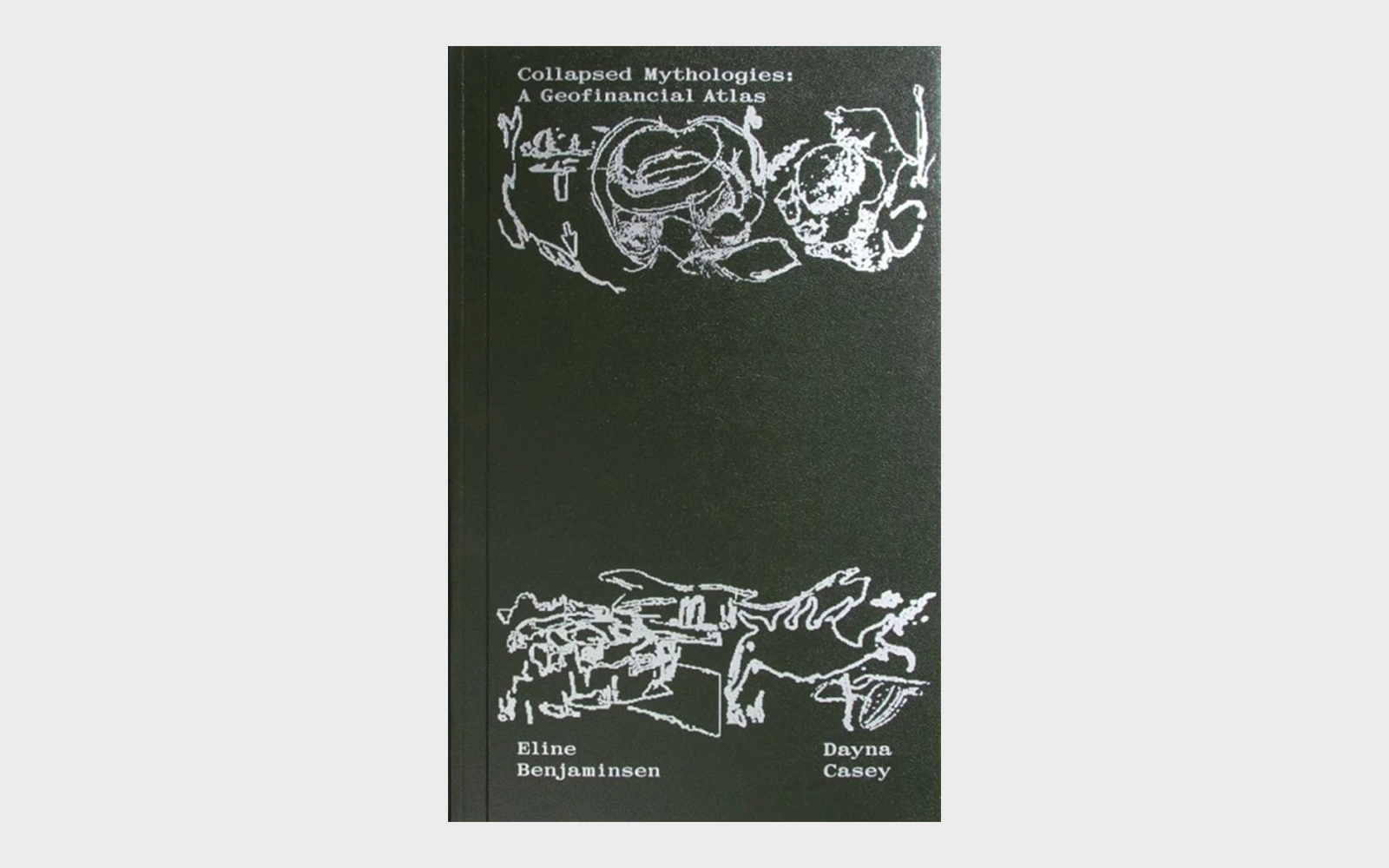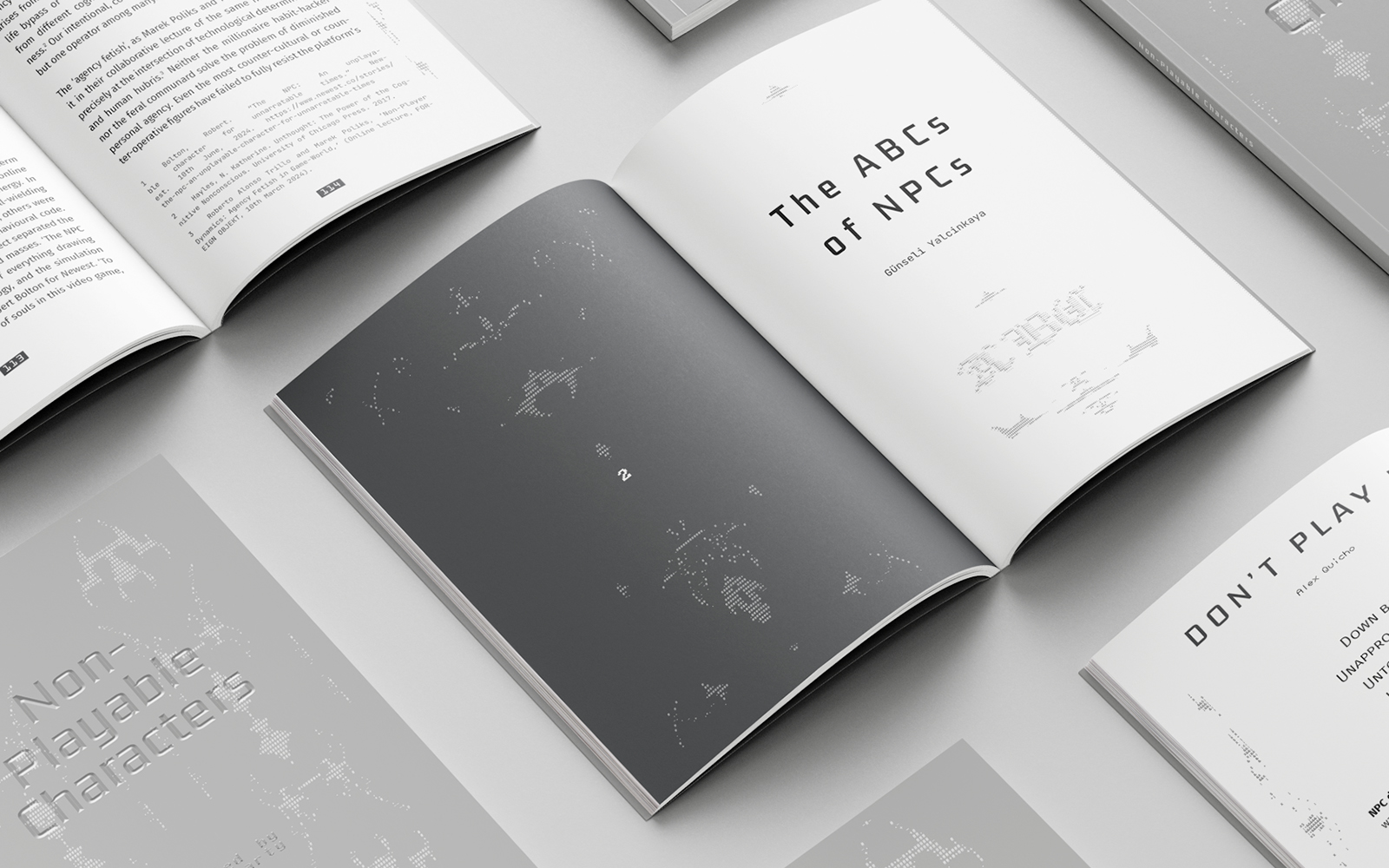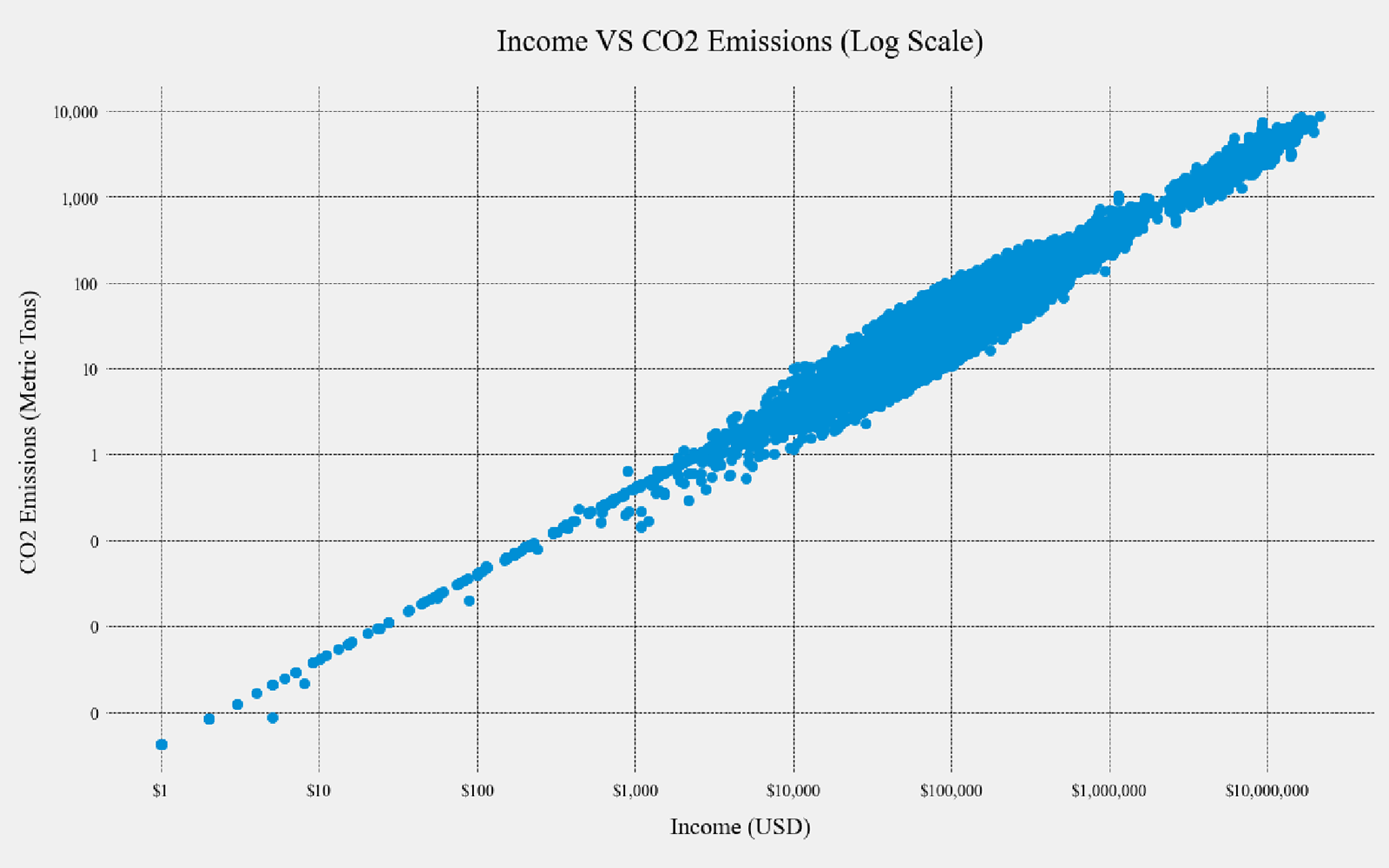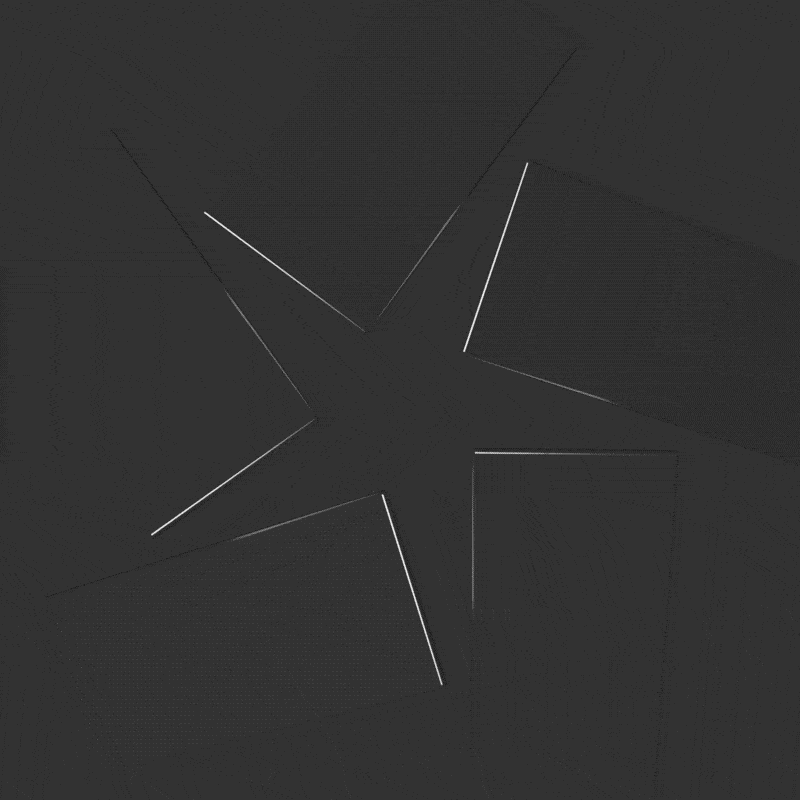Exhibitions, Research, Criticism, Commentary
A chronology of 3,585 references across art, science, technology, and culture
Benjaminsen & Casey
Collapsed Mythologies: A Geofinancial Atlas

“It is a chatbot which will enable users to pose political, historical, social questions, problems of organization and tactical initiative, and receive a response which draws on the vast archive of Marxist thought.”
Non-Playable Characters

“You put these things out into the world—they’re artworks but also assets. And the fact that they behave as a dual ‘cultural object plus asset’ container is something I didn’t understand at first.”
Building on his activist work exploring “unconventional CO2 offsets” with collaborator Tega Brain, American artist Sam Lavigne introduces the world’s first (?) income-based carbon footprint calculator. The tool is based on new insights on emissions inequality that show that “40% of total U.S. emissions were associated with income flows to the highest earning 10% of households.” As Lavigne states: “Some people are, in fact, more responsible than others.”

“There is no path to profitability for subprime AI. These absurd data centers will stand sentinel over the ruins of our fake economy like moai on Easter Island.”
Paul Guillibert
Anthropocene Communism

“The multiday treatment program at NOX, with its careful progression through diagnostic spaces, doesn’t cure a car of contemplation but manages it, containing affect within acceptable parameters.”
“Switching from an LLC or 501(c)(3) to an A-Corp model is a bit like a gambler switching from roulette or slot machines to blackjack: no matter the game, the odds are still stacked against you.”
“AI is the asbestos we are shovelling into the walls of our society, and our descendants will be digging it out for generations.”
Adam Hanieh
Crude Capitalism

“We went from MONDO 2000 being the main magazine of the internet—a weird, psychedelic, hypertext universe, Gen X free-for-all—to WIRED, which was saying ‘you can make money,’ and ‘you can invest in the future.’ Once people are betting on the future they don’t want infinite possibility anymore.”
“If you’ve never spun up an AWS orchestration diagram how can you possibly critique the state of software today? I don’t understand how academia can critique technocapitalism without having actually done any of that work.”
Alyssa Battistoni
Free Gifts: Capitalism and the Politics of Nature

Poliks & Trillo
Exocapitalism

“That’s the pitch: Somehow it’s fiscally irresponsible to build a stronger floor for everyone to stand on if it in any way may lower the already astronomical ceiling height experienced by the rare few.”
Spanish artist Karlos Gil explores economic stagnation and technological obsolescence in “Need for Speed,” an environment examining the shifting urban identity of Lleida (ES). Filling La Panera’s columned warehouse space with video, graffiti, and industrial detritus, the installation transforms the former grain storage facility into an “archaeology of what was and what is to come”—balancing fading agricultural heritage with glimpses of regeneration and futurity.

Migros Museum of Contemporary Art Zurich continues “Accumulation—on Collecting, Growth and Excess” with its second sequence, examining the side effects of unchecked economic growth. Featured artists include Rindon Johnson, Mimi Ọnụọha, and Raqs Media Collective exploring fast fashion, digital infrastructures, and colonial narratives. Selma Selman’s Motherboards (2023), for example, documents the artist and her family extracting gold from e-waste, recasting stigmatized labour as valuable practice.

“By making high-stakes speculation feel like a game, crypto platforms increase convenience and encourage sustained activity. This is not accidental; it is an engineered dynamic that drives volume, visibility and, ultimately, revenue.”
Daily discoveries at the nexus of art, science, technology, and culture: Get full access by becoming a HOLO Supporter!
- Perspective: research, long-form analysis, and critical commentary
- Encounters: in-depth artist profiles and studio visits of pioneers and key innovators
- Stream: a timeline and news archive with 3,100+ entries and counting
- Edition: HOLO’s annual collector’s edition that captures the calendar year in print
